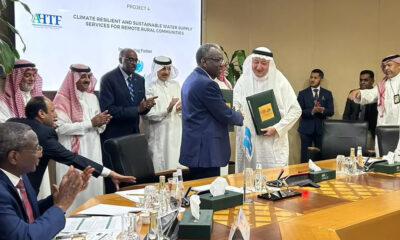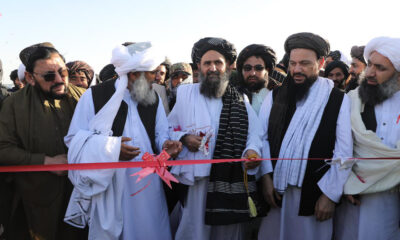Business
IEA plans to formally join China’s Belt and Road Initiative
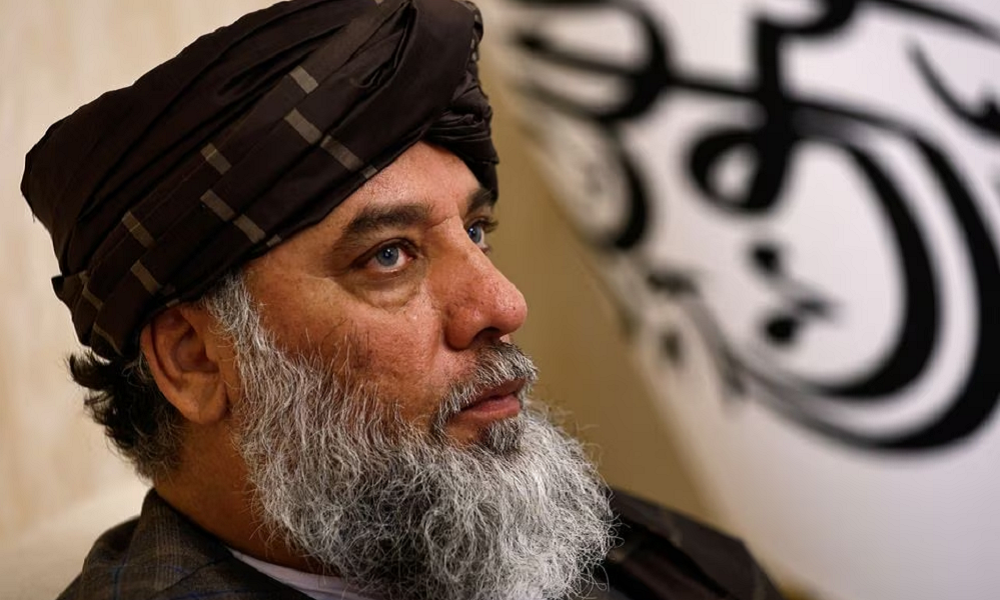
The Islamic Emirate of Afghanistan (IEA) wants to formally join Chinese President Xi Jinping’s huge Belt and Road Initiative (BRI) and will send a technical team to China for talks, Afghanistan’s acting commerce minister said on Thursday.
Beijing has sought to develop its ties with the IEA government since it took over in 2021.
Last month, China became the first country to appoint an ambassador to Kabul, with other nations retaining previous ambassadors or appointed heads of mission in a charge d’affaires capacity that does not involve formally presenting credentials to the government.
“We requested China to allow us to be a part of the China-Pakistan Economic Corridor and Belt and Road Initiative… (and) are discussing technical issues today,” acting Commerce Minister Haji Nooruddin Azizi told Reuters in an interview a day after the Belt and Road Forum ended in Beijing.
The Pakistan “economic corridor” refers to the huge flagship section of the Belt and Road Initiative (BRI) in Afghanistan’s neighbour.
Azizi said the administration would also send a technical team to China to enable it to “better understand” the issues standing in the way of it joining the initiative, but did not elaborate on what was holding Afghanistan back.
Afghanistan could offer China a wealth of coveted mineral resources. Several Chinese companies already operate there, including the Metallurgical Corp. of China Ltd (MCC) which has held talks with the IEA, as well as the previous Western-backed government, over plans for a potentially huge copper mine.
“China, which invests all over the world, should also invest in Afghanistan… we have everything they need, such as lithium, copper and iron,” Azizi said. “Afghanistan is now, more than ever, ready for investment.”
Asked about the MCC talks, Azizi said discussions had been delayed because the mine was near a historical site, but they were still ongoing. “The Chinese company has made a huge investment, and we support them,” he added.
Asked about the security challenges, Azizi said security was a priority for the IEA-run government, adding that after 20 years of war – which ended when foreign forces withdrew and the IEA took over – meant more parts of the country were safe.
“It is now possible to travel to provinces where there is industry, agriculture and mines that one previously could not visit… security can be guaranteed,” Azizi added.
Afghanistan and 34 other countries agreed to work together on the digital economy and green development on the sidelines of the Belt and Road Forum on Wednesday.
Business
Turkmenistan makes ‘significant progress’ on TAPI pipeline project
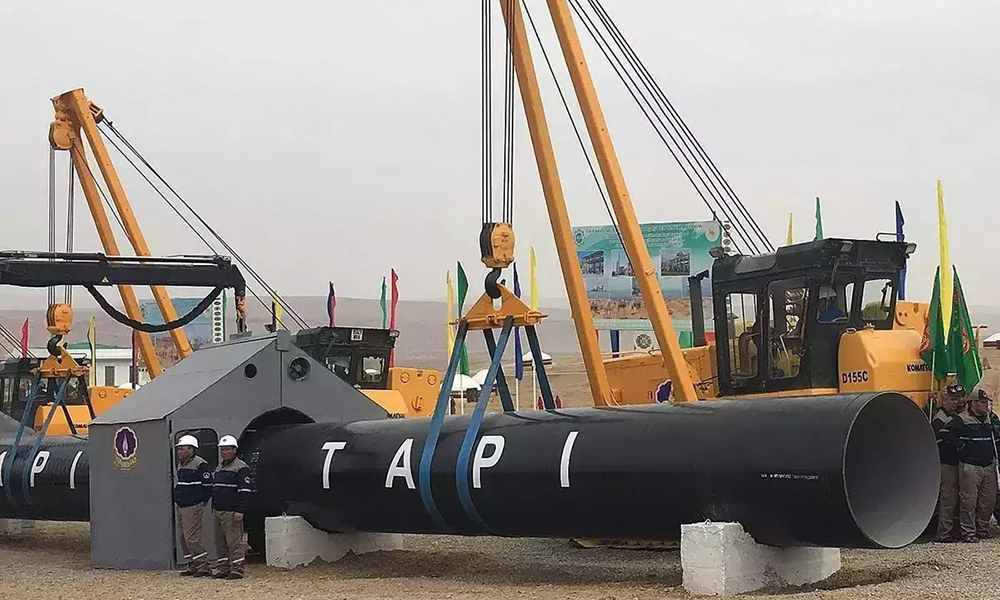
Turkmenistan has made “significant progress” on the Turkmenistan-Afghanistan-Pakistan-India (TAPI) gas pipeline project, said TAPI Pipeline Company Limited CEO Muhammetmyrat Amanov.
“Turkmenistan is making significant progress on the TAPI natural gas pipeline, which will supply 33 billion cubic meters to South Asia annually,” he said.
Speaking at the Turkmen Energy Investment Forum (TEIF 2024) currently being held in Paris, Amanov highlighted that Turkmenistan’s section of the pipeline had been completed and ongoing discussions to advance the project beyond Turkmenistan were in strict alignment with the international standards.
He said the project envisaged environmental sustainability by leveraging natural gas to reduce emissions significantly compared to coal and oil, thereby tackling indoor pollution and enhancing regional air quality.
“In light of the ongoing project developments, Turkmenistan remains committed to upholding the international law, fulfilling its obligations and adhering to international norms and regulations,” he said.
This approach reaffirms Turkmenistan’s dedication to global cooperation and legal integrity in executing the TAPI project.
Looking ahead, the project’s focus is shifting to the Herat Offtake Strategy in Afghanistan, which will play a critical role in environmental protection by reducing air pollution, while also contributing to maintaining public safety, he said.
Business
Azizi calls on Malaysian investors to invest in Afghanistan
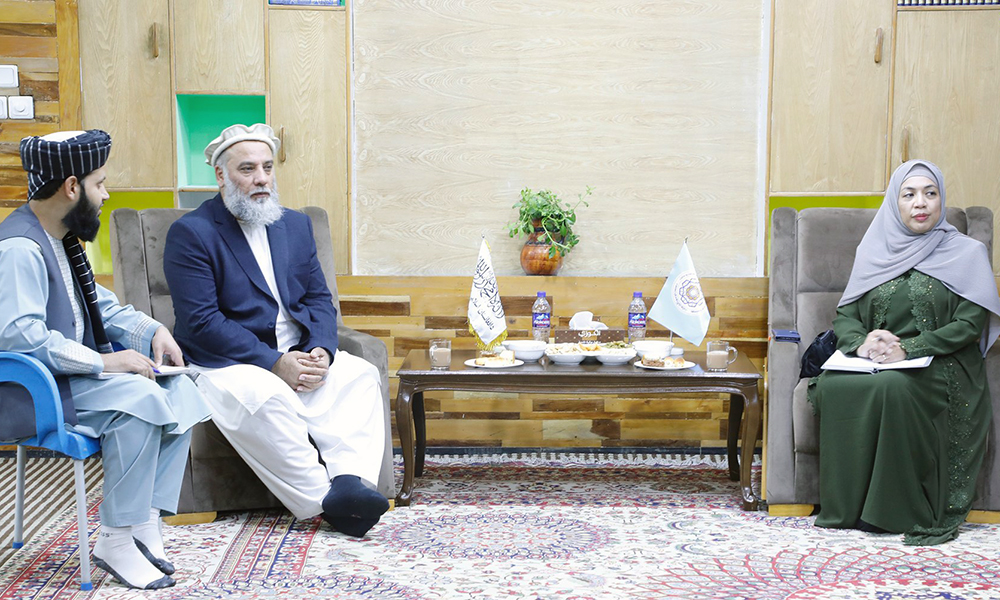
Nooruddin Azizi, Acting Minister of Commerce and Industry, met with representatives from the ministries of foreign affairs, defense and interior of Malaysia, along with other senior officials, on Wednesday and called on Malaysians to invest in Afghanistan.
The visiting delegation is being led by senior diplomat Dr. Shazelina Zainul Abidin.
According to the IEA’s foreign ministry, the two sides discussed bilateral trade, holding a business communication conference to strengthen trade relations between the two countries, the trade balance between Afghanistan and Malaysia, and creating a market for Afghan products, including carpets, cotton, and minerals.
According to the ministry, at the end of the meeting, the Acting Minister emphasized the increase of investment from regional countries in Afghanistan and called on Malaysian investors to also invest in Afghanistan.
Business
Afghanistan starts exporting via railway to Turkey

The Ministry of Interior says that Afghanistan has started exporting goods to Turkey via the Herat-Khaf railway line.
In a post on X, the ministry said: “Afghanistan’s exports to Turkey started in a calm atmosphere through the Herat-Khaf railway line.”
The ministry added that one train will run daily for a month and then two trains will run daily.
According to the ministry, the security of Khaf-Herat railway line is provided by the guards of the National Public Protection Agency.
Khaf-Herat railway project not only connects Iran and Afghanistan by rail, but also completes a 2,000-kilometer route along the east-west rail corridor from China, through Uzbekistan, to Afghanistan, to Iran, and on to Turkey and Europe.
As a landlocked country, this railway network will provide a safe route to connect with Europe via Iran’s railway network and Iran’s southern ports.
This railway line is strategic for trade between Iran and Afghanistan and will allow six million tons of goods to be sent between the two countries.
-

 Latest News5 days ago
Latest News5 days agoOver 1,000 Afghan refugees forced out of Pakistan in one day
-

 Sport3 days ago
Sport3 days agoAfghanistan beat Iraq 5-3, inch closer to Futsal World Cup berth
-

 Regional3 days ago
Regional3 days agoNew UK sanctions target Iranian drone industry
-

 Regional4 days ago
Regional4 days agoTurkey accuses U.S. of double standards over Gaza in rights report
-

 Latest News3 days ago
Latest News3 days agoEU allocates 17 million euros to support Afghans on the move
-

 Latest News2 days ago
Latest News2 days agoPakistan extends registered Afghan refugees’ stay till June 30
-

 World4 days ago
World4 days agoUS student protests over Gaza intensify despite arrests
-

 Regional2 days ago
Regional2 days agoChina to host Hamas, Fatah for Palestinian unity talks




